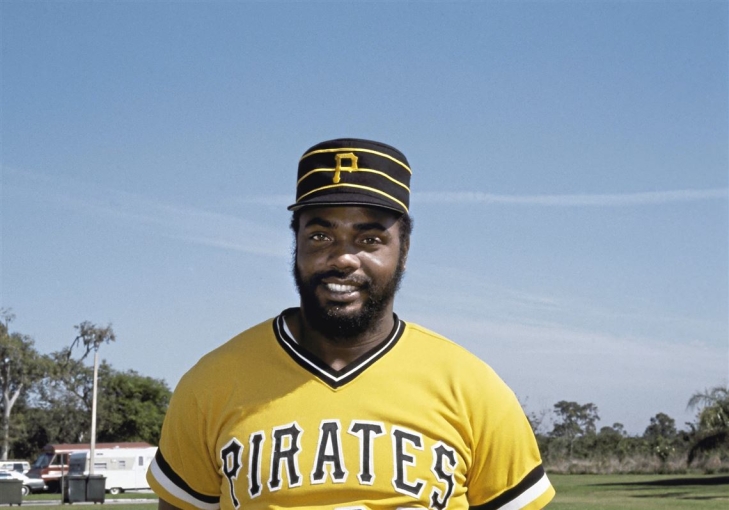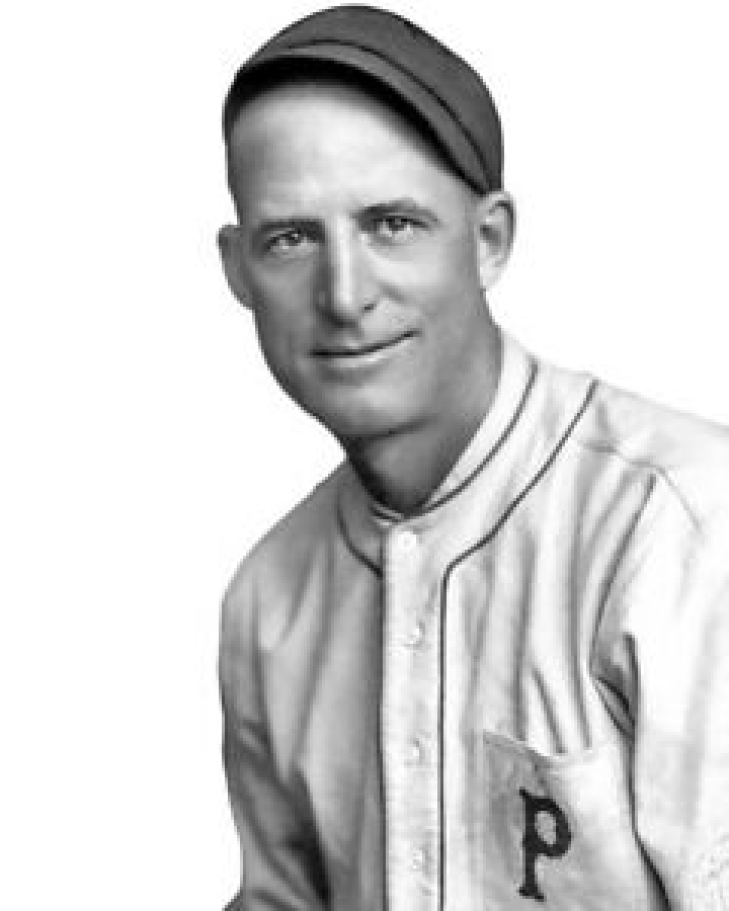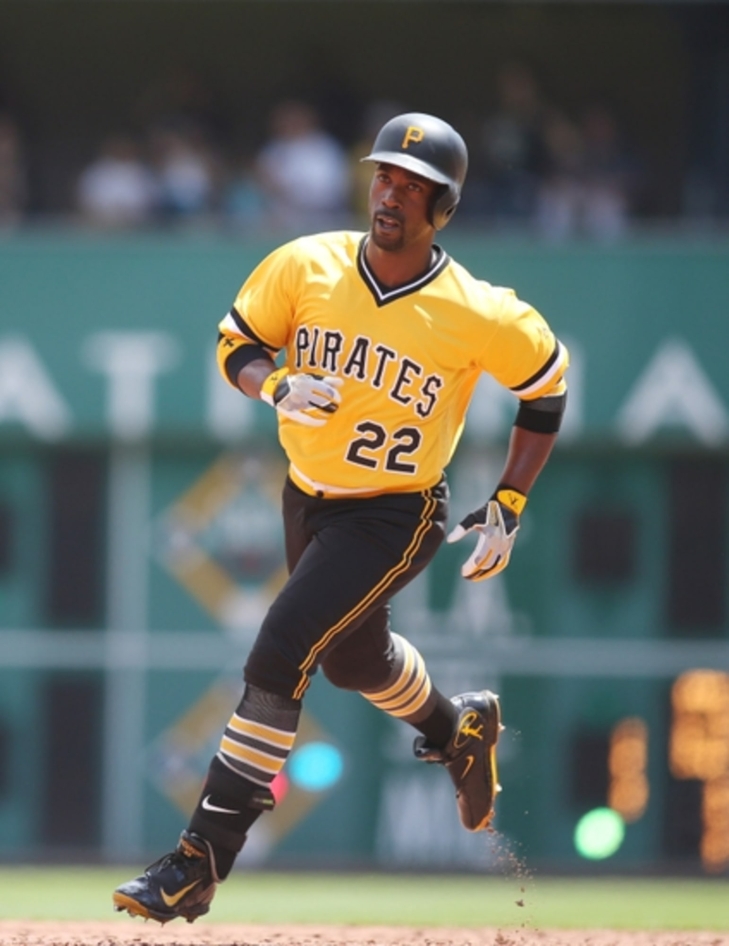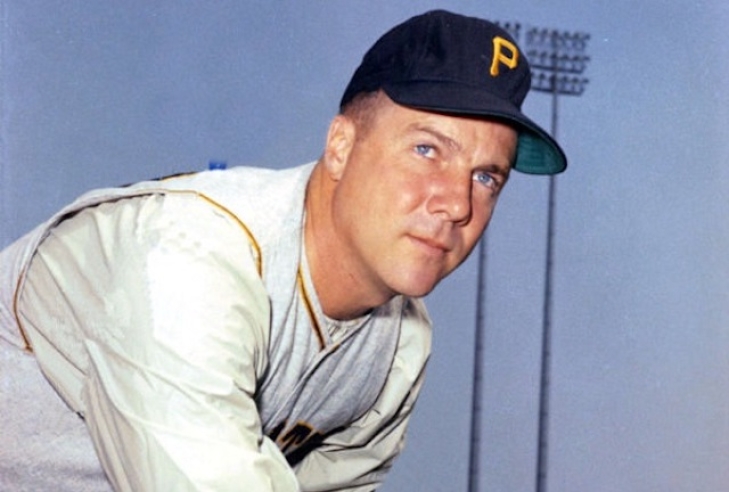
Committee Chairman
14. Dave Parker
With the nickname of "The Cobra" and a look that screamed, "badass," Dave Parker was one of the most popular baseball players of the late 70s and early 80s, and that was not just in Pittsburgh.
Parker debuted in 1973 and was the Pirates starting Rightfielder two years later, with his first 20 HR, 100 RBI, .300 year. Parker was third in MVP voting that season and was third again in 1977, where he won the Gold Glove and won the Batting Title (.338), led the NL in Hits (215) and Doubles (44). He won his second Batting Title (.334) and Slugging Title in 1978 (.585), captured a second Gold Glove, and won the coveted MVP. As good as this was, there were more peaks to come.
The Cobra helped lead the Pirates to a World Series win in 1979, with Parker delivering another All-Star and Gold Glove year. While Parker was voted into the All-Star Game the next two years, the bloom was off the rose. He was beset by injuries, weight problems, but mostly excessive cocaine use, which cost him Games as well as Hits. Parker arguably did not have a great year as a Pirate in the 1980s.
Parker signed with the Reds as a Free Agent with Cincinnati before the 1984 Season, and he had an up-and-down career after that, often brilliant, and often disappointing. With the Pirates, he had 1,479 Hits, 166 Home Runs, 758 RBIs, and a Slash Line of .305/.353/.494, though the common belief is that he should have had more.
In 2025, Parker received the long-awaited call and was chosen by the Veteran's Committee for the Baseball Hall of Fame.
13. Fred Clarke
Fred Clarke was one among the herd of players who was traded from the Louisville Cardinals to Pittsburgh at the turn of the century, but unlike the others, Clarke was brought in to serve as both a player and Manager.
Clarke was Pittsburgh's starting Leftfielder for the first 12 years, and he provided 1,638 Hits with a .299 Batting Average with 261 Stolen Bases. His best season as a player was 1903, where Clarke led the NL in Doubles (32), Slugging Percentage (.532), and OPS (.946), with a career-high .351 Batting Average. Clarke would lead the Pirates to their first World Series Championship in 1909, the same season he also topped the NL in Walks (80).
After the 1911 Season, Clarke rarely played but stayed on as their Manager until 1915.
He was named to the Baseball Hall of Fame by the Old Timers Committee in 1945.
11. Andrew McCutchen
Andrew McCutchen was a former First Round Pick (11h Overall in 2005), and four years later, after tearing it up at every Minor League level, he took over in Centerfield for the Pirates.
McCutchen finished fourth in Rookie of the Year voting, and two years later, he went to the first of five consecutive All-Star Games. Growing into the top Centerfielders in the National League, McCutchen showed power, with seven straight 20-Home Run years, speed with five consecutive 20-Stolen Base seasons, and he hit over .300 three times, including winning an On Base Percentage in 2014 (.410).
A four-time Silver Slugger, McCutchen had four top-five finishes in MVP voting and won the MVP in 2013 when he had a 24-HR year with a Slash Line of .314/.404/.508.
McCutchen's stats slipped after 2015, but he was still a very good player and the heart and soul of the Pirates. Fans were stunned when he was traded to San Francisco before the 2018 Season, ending the popular player's stay in Pittsburgh, at least for a while. The Pirates brought McCutchen back as a veteran in 2023, where he remains today, adding to his legacy.
12. Bob Friend
Bob Friend played most of his career with the Pittsburgh Pirates (1951-63), where he quietly had one of the better decades of the National League's Pitchers.
Friend cracked the Majors in 1951, but it was not until 1955 where he proved himself as a bona fide Starting Pitcher. While his record was only 14-9, he led the NL in ERA (2.83) and bWAR for Pitchers (6.0). Over the next three seasons, Friend was a workhorse leasing the league in Games Started in the first three years and Innings Pitched in the first two. The three-time All-Star had his most decorated season in 1958, where he led the NL in Wins (22) and finished third for the Cy Young and sixth for the MVP. Two years later, Friend was a large part of the Pirates surprise World Series win over the New York Yankees.
Friend played for Pittsburgh until 1965, and he had quick stops with both New York teams before retiring after 1966. He would have a losing record of 197-230 but was still highly regarded.
Despite his accomplishments, Friend was left off the Baseball Hall of Fame ballot when he was first eligible in 1972.





